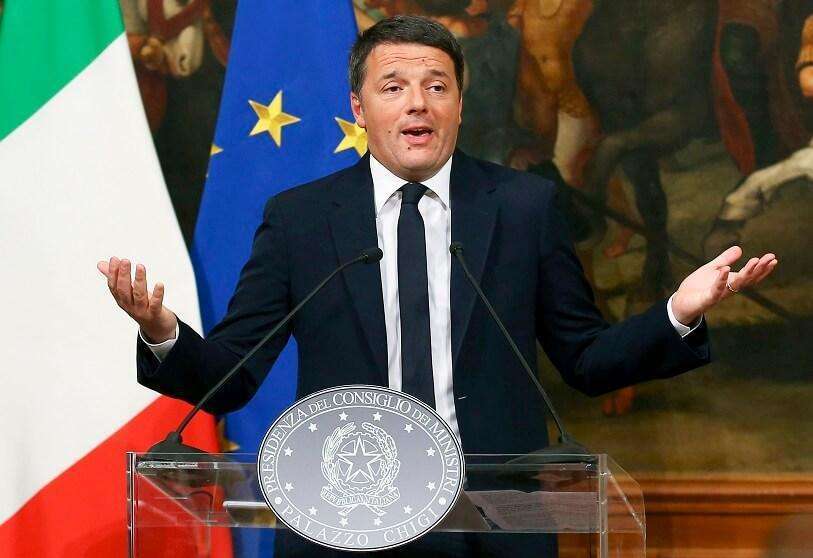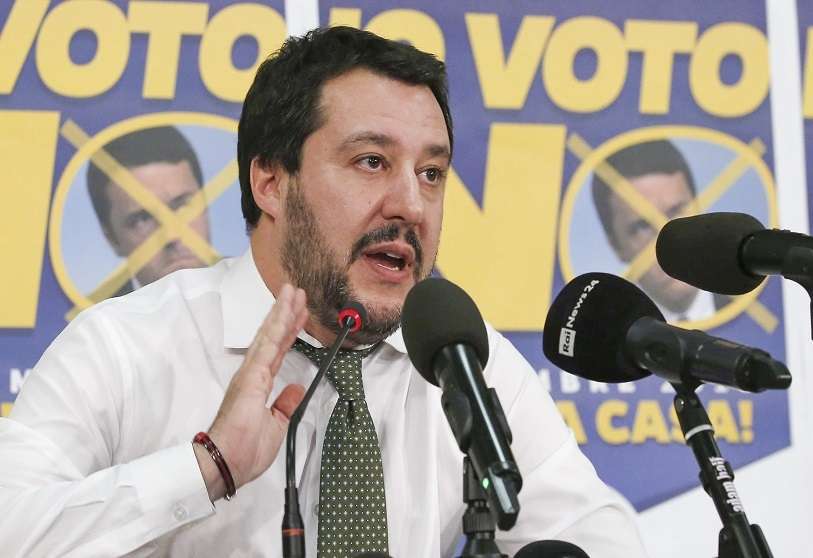The war in Ukraine sharply divides Italy's political class

The invasion of Ukraine by the Russian army, which began on 24 February, is generating strong polarisation in the Italian political class, which is showing the greatest degree of division since the Draghi government was formed in mid-February last year. What is at stake is not only the energy issue, but even more the possible loss of a privileged market for the transalpine economy, with a strong exporting tradition and which for decades has had a major buyer in the Russian world. This means that the two regions that are most concerned about what is happening in Ukraine are precisely the two richest in the country: on the one hand, Lombardy, where the main companies are concentrated; on the other, Veneto, full of small and medium-sized businesses that produce all kinds of goods destined precisely for the Russian Federation.
The most worrying thing is that the main division is between the President of the Council of Ministers (Mario Draghi), who favours a "hard line" policy towards Russia, and his two main members within the "maggioranza", which are none other than the Lega and the Cinque Selle Movement. Draghi sees this as a unique opportunity to strengthen the European Union, while the leaders of these two parties maintain that Putin's reprisals, should he win the war, could be very damaging for the country. Opposing them are the Democratic Party (PD) and Italia Viva, who are with Draghi, but between them have less than half of the parliamentarians in the current "maggioranza". And, in between, the Brothers of Italy, who count for little because they are not part of the "maggioranza", but who, at the end of the day, are leading the polls on voting intentions, with Meloni increasingly supported against a Salvini in his lowest hours (right now not even those who voted for him in March 2018 would vote for him, which gives an idea of the debacle that the Lombard politician is experiencing). Finally, Forza Italia feels closer to Draghi, but it is also aware that, while they controlled the presidency of the Council of Ministers, they maintained very good relations with Putin's Russia, so they are inclined to adopt a position that is as open to dialogue as possible. It should also be noted that four of the main national parties are led by a former prime minister, so they know better than anyone what trade with the Russian Federation means: Forza Italia, Italia Viva, PD and Cinque Stelle.
It is true that it is becoming increasingly clear that the Draghi government could end up falling in the coming months if both the Lega and Cinque Stelle abandon him. But, to the current premier's good fortune, the parties that in March 2018 accounted for almost 50% of the votes, now do not even reach 30% if the support of both formations is combined. And, in the case of Cinque Stelle, in the event of early elections and taking into account that in 2018 it managed to win more than 310 MPs between the two chambers, 75% of its current members could easily go directly to the street and have to leave politics for good.

In the Italian case, unlike other countries (the clearest case is Germany, which had a gas pipeline built across the Baltic Sea, called "Nordstream", so that the Russian Federation could provide it with all the energy necessary for its economic activity), the focus of the conflict is not on non-renewable resources (both oil and gas), since the Draghi government has very good sources in both Algeria and Libya, not to mention the Arab world. The problem is another, and that is that the ruin to which the autocrat (or rather, genocidal) Putin is leading his country may leave the Italians without a first-rate buyer (remember that the Russian Federation has a population of over 146 million inhabitants).
And it should be remembered that the current legislature, which began in March 2018, began with the so-called "Government of Change" (born of the pact between Cinque Stelle and Lega) and that Salvini went in person to Moscow to show his "respects" to Vladimir Putin. According to some journalistic investigation, he did more than that: in what is known as "Moscopoli", he offered an Italian public company to, through the purchase of energy, take a "tangent" of some 50 million euros with which to finance the battered accounts of his party after the disastrous management of both Bossi and Maroni, former leaders of the Lega.
This issue was uncovered in February 2019 by journalists of the weekly La Repubblica, but it is certain that since then nothing has been heard about it: today, Salvini has not received a single "avviso di garanzia" (indictment) from the justice system of his country, and since the fall of the "Government of Change" (August 2019), nothing has been said about it. Presumably, when the next elections approach, the issue will come to light again, but for the moment the reality is that it seems, as has also happened to Renzi with the "Open Foundation" (although in his case there is going to be a trial, starting on 4 April), that this is the umpteenth trial, that this is the umpteenth occasion on which the left has used judicial action to try to defeat the centre-right in the face of the reality that its particular "sport" (with the exception of 1996, 2006 and 2013) is to systematically lose national elections when its rivals are precisely those from the other side of the parliamentary spectrum.

The reality is that at the moment it is Draghi who calls the shots in the Executive, who has wanted to lead, within the European Union, the position of complete support for the Ukrainian government, materialised in the sending of arms. This is hampering the activity of the Russian army, which in little more than a month of war has not even brought down the martyred city of Mariupol. Moreover, the Ukrainians, who at first had nothing to defend themselves with, are becoming increasingly organised, while the Russian supply centres are experiencing serious supply problems.
We shall see what becomes of all this, but just as the Russian Federation is entering a severe recession, it seems hard to deny that some European countries (including Spain) are suffering from an increase in the cost of living that may eventually lead to the fall of some of their governments. And, once again, Draghi has once again prevailed over Salvini, who dominated national politics between September 2018 and February 2021, and to whom the current Executive is exposing the shortcomings of a politician with a level of education that is simply infamous for a country of the very high cultural level that Italy is. Of course, if Italy goes into recession or its growth is substantially paralysed as a result of this war, then Salvini will be able to "rise from the ashes", wielding what he loves so much: demagogy, anti-Europeanism and ultra-nationalism. But the truth is that, at least for the moment, Draghi is winning the game. And Cinque Stelle, in turn, is getting closer every day to signing its death certificate after being the real fiasco of the current legislature.
Pablo Martín de Santa Olalla Saludes is a professor at the Centro Universitario ESERP and author of the book 'Historia de la Italia republicana (1946-2021)' (Madrid, Sílex Ediciones, 2021).



